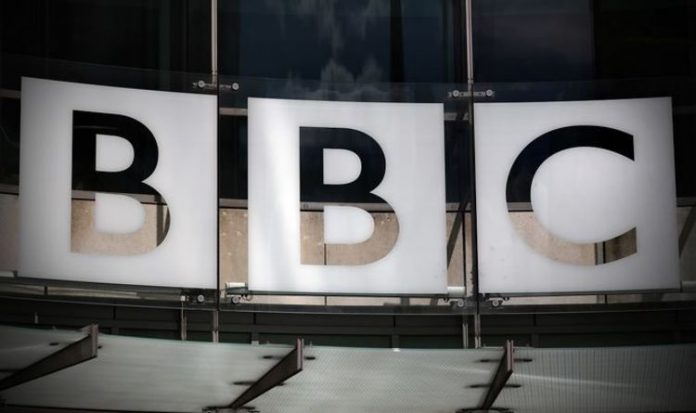Simon Heffer, historian and conservative political commentator, has hit out at what he called a “conscious decision” by the public broadcaster to “marginalise the middle-aged and elderly”. He claimed the efforts had been a “disaster” as new figures show the BBC is struggling to retain its younger audience.
Mr Heffer’s comments follow the publication of Ofcom’s third annual report into the BBC.
Covering the period from April 2019 to March 2020, the report investigated how well the BBC performed and complied with its regulatory requirements.
It revealed the public broadcaster was struggling to reach younger audiences, while older viewers – which are traditionally a strong audience – also showed signs of decreasing satisfaction.
Ofcom said “reach is decreasing among these loyal groups, and older audiences in particular are starting to show signs of decreasing satisfaction”.
It claimed people over the age of 55 who had a “positive impression” of the BBC had fallen from 64 percent to 62 percent over the past two years.
It also showed the average time per day spent by adults aged between 16 and 34 on consuming BBC content had fallen from one hour 16 minutes to 58 minutes between 2017 and 2019.
READ: DISASTER for Boris Johnson as Tory Brexiteers warn they could vote down EU trade deal
Mr Heffer disagreed. Writing in the Telegraph, the columnist said even shows like Gardeners’ World have become “ostentatiously woke” and added: “Little else appeals: the world our age group really wants to see on television is best represented on the Talking Pictures channel, whose success, believe me, is not coincidental to the BBC’s decline.
“This schedule of gloom is punctuated by profoundly unfunny Leftist comedians (I use that noun in its broadest, often unintentional sense).
“The BBC has become enslaved to the woke agenda and is afraid to pass up any opportunity to advance it.”
Meanwhile, Ofcom’s report also delved into impartiality and found the BBC’s news output was regarded as less impartial than that offered by competing outlets such as Channel 4, ITV, and Sky News, according to their viewers.
The report said: “In separate research, when we asked regular users of other news providers to rate the performance of each of them, Sky News channel, ITV and Channel 4 all scored higher than the BBC TV for delivering impartial news over the past year.
“Since 2017/18, there has been a decrease in the proportion of regular users of BBC TV and ITV for news who believe that these providers’ news is impartial.
“The opposite is true for Sky News channel and Channel 4; their regular news viewers returned increased scores for perceptions of impartiality during this time.”
This year’s report comes amid uncertainty surrounding the future of the BBC and its funding model – a key issue facing the broadcaster’s new boss Tim Davie.







